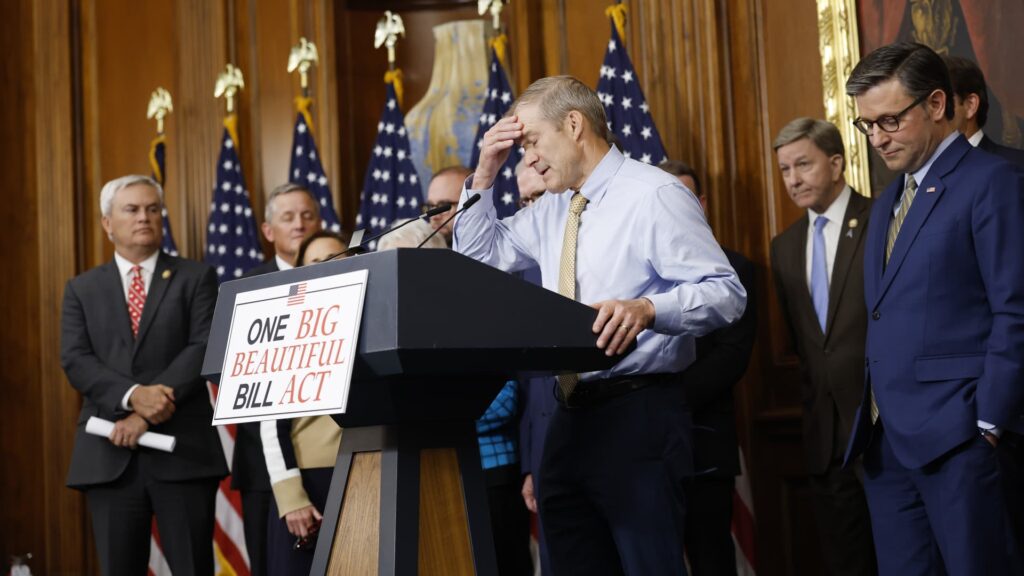
President Donald Trump’s “big, beautiful bill” would add $2.4 trillion to federal budget deficits over the next decade, the Congressional Budget Office estimated Wednesday.
The bill passed by House Republicans last month would decrease federal spending by $1.3 trillion, but also see a $3.7 trillion drop in revenues, according to the CBO’s latest analysis.
The budget package is expected to be tweaked further in the Senate, where it already faces headwinds from deficit hawks who have criticized the bill over concerns it would lead to exploding deficits.
Sen. Ron Johnson, R-Wis., said earlier Wednesday on CNBC’s “Squawk Box” that he would not vote for the bill as it stands, calling it “grotesque” and “immoral.”
Republican senators also face new outside pressure from Elon Musk, the former head of Trump’s government-slashing Department of Government Efficiency, or DOGE, initiative, who slammed the bill as a “disgusting abomination.”
Some GOP lawmakers, including Sen. Rand Paul and Rep. Thomas Massie, both of Kentucky, have already sided with Musk.
Johnson, who has repeatedly called for the U.S. to return to pre-pandemic levels of spending, has backed splitting the bill into two separate parts.
But that proposal has been rejected by Trump, who is urging the GOP to pass his agenda in “one big, beautiful bill” without Democratic help using the reconciliation process.
Meanwhile, Trump allies have repeatedly railed against the nonpartisan CBO estimates, seeking to undercut the agency’s credibility.
White House press secretary Karoline Leavitt said Tuesday that the CBO “has been historically wrong.”
Senators are facing a time crunch, as Trump has indicated that he wants the package on his desk by July 4.
Clarification: This story has been updated to reflect how the Congressional Budget Office characterizes the gap in revenue and spending resulting from the tax bill. The CBO says that gap will result in larger annual deficits, which will add to the national debt.

